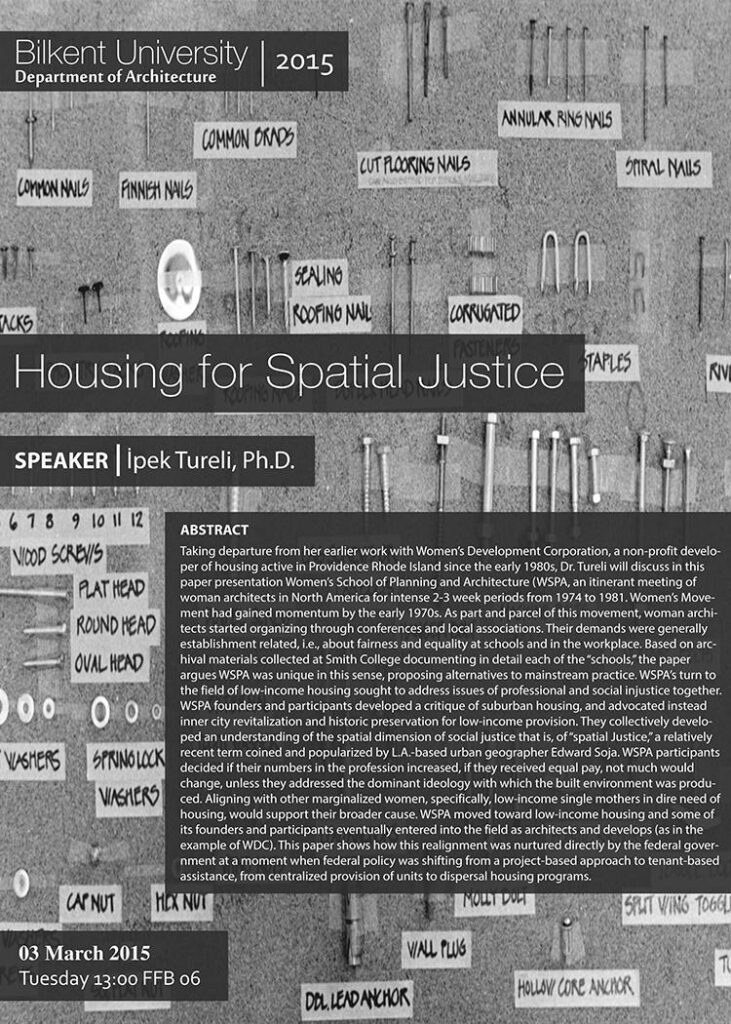
Taking departure from her earlier work with Women’s Development Corporation, a non-profit developer of housing active in Providence Rhode Island since the early 1980s, Dr. Tureli will discuss in this paper presentation Women’s School of Planning and Architecture (WSPA), an itinerant meeting of woman architects in North America for intense 2-3 week periods from 1974 to 1981. Women’s Movement had gained momentum by the early 1970s. As part and parcel of this movement, woman architects started organizing through conferences and local associations. Their demands were generally establishment related, i.e., about fairness and equality at schools and in the workplace. Based on archival materials collected at Smith College documenting in detail each of the “schools,” the paper argues WSPA was unique in this sense, proposing alternatives to mainstream practice. WSPA’s turn to the field of low-income housing sought to address issues of professional and social injustice together. WSPA founders and participants developed a critique of suburban housing, and advocated instead inner city revitalization and historic preservation for low-income provision. They collectively developed an understanding of the spatial dimension of social justice, that is, of “spatial Justice,” a relatively recent term coined and popularized by L.A.-based urban geographer Edward Soja. WSPA participants decided if their numbers in the profession increased, if they received equal pay, not much would change, unless they addressed the dominant ideology with which the built environment was produced. Aligning with other marginalized women, specifically, low-income single mothers in dire need of housing, would support their broader cause. WSPA moved toward low-income housing and some of its founders and participants eventually entered into the field as architects and develops (as in the example of WDC). This paper shows how this realignment was nurtured directly by the federal government at a moment when federal policy was shifting from a project-based approach to tenant-based assistance, from centralized provision of units to dispersal housing programs.
Date: 03/03/2015 Tuesday
Time: 13:30
Place: FFB-06

